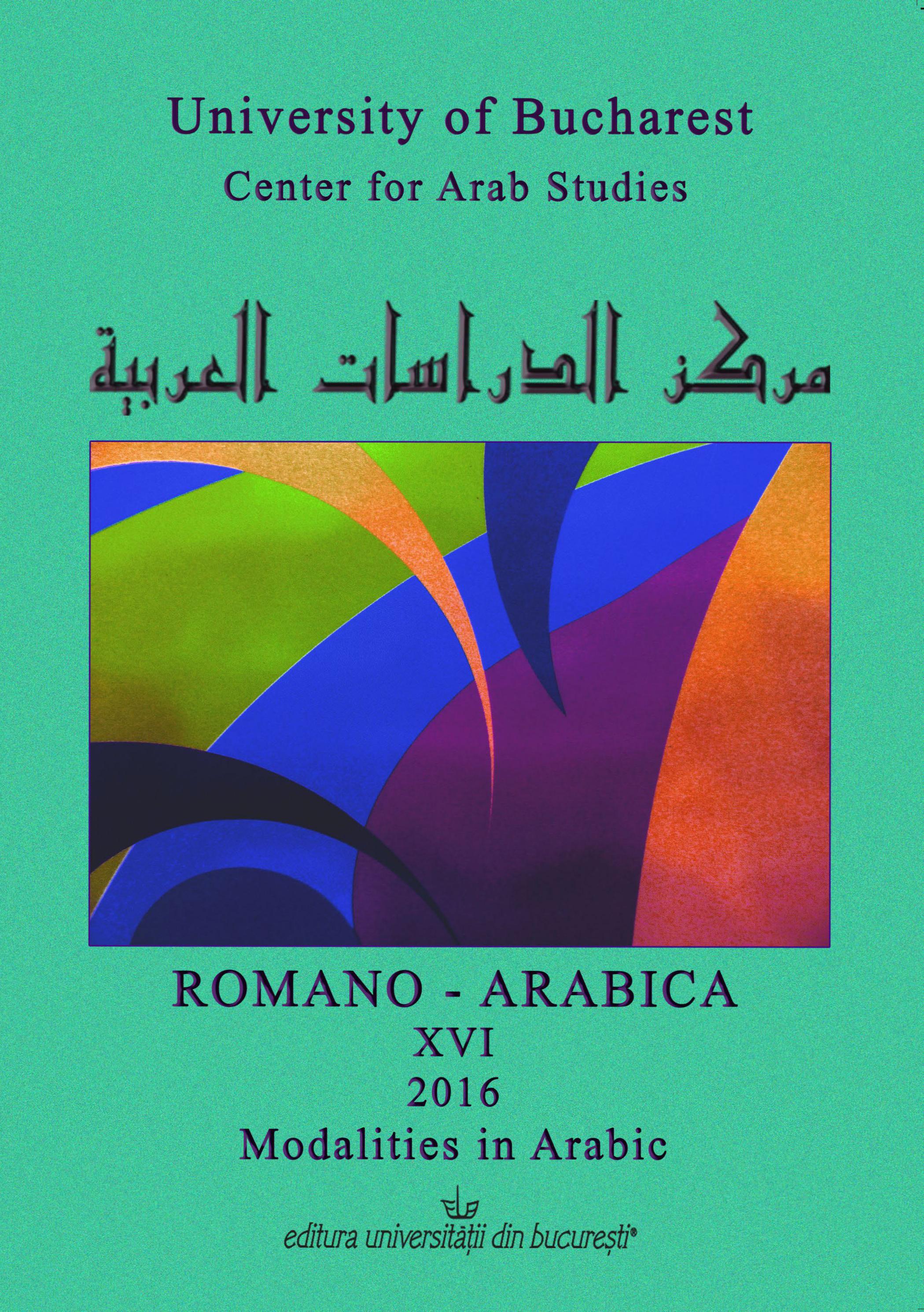THE DEHORTATIVE IN THE SPOKEN ARABICS OF THE EASTERN MEDITERRANEAN
THE DEHORTATIVE IN THE SPOKEN ARABICS OF THE EASTERN MEDITERRANEAN
Author(s): David WilmsenSubject(s): Language studies, Theoretical Linguistics, Language acquisition
Published by: Editura Universităţii din Bucureşti
Keywords: dehortative; eastern Mediterranean Arabic dialects; hortative; jussive; modality; negatives; prohibitive;
Summary/Abstract: A few authors mention a hortative mood in Arabic, formed in a variety of manners, usually involving a pre-verbal element and an unmarked imperfective verb, sometimes thought of as the jussive or subjunctive. Not an imperative, the Arabic hortative may apply to all three persons. Its opposite, the dehortative, similarly not a prohibitive, also applies to all three persons, and it, too, is expressed in a variety of manners, all involving the unmarked imperfective verb and preverbal elements, often not negators but expressing an inherent negation. It may also be formed with reflexes of the negator miš preceding an unmarked imperfective verb. Such negation has been remarked in Egyptian Arabic in five types of constructions: in contrastive, metalinguistic, and rhetorical negation, in negations of progressive aspect, and in the dehortative. Not restricted to Egyptian Arabic, verbal negation with miš/muš/mhūš occurs in Levantine Arabics, Tunisian Arabic, and the closely related Maltese.
Journal: Romano-Arabica
- Issue Year: XVI/2016
- Issue No: 16
- Page Range: 133-150
- Page Count: 18
- Language: English

